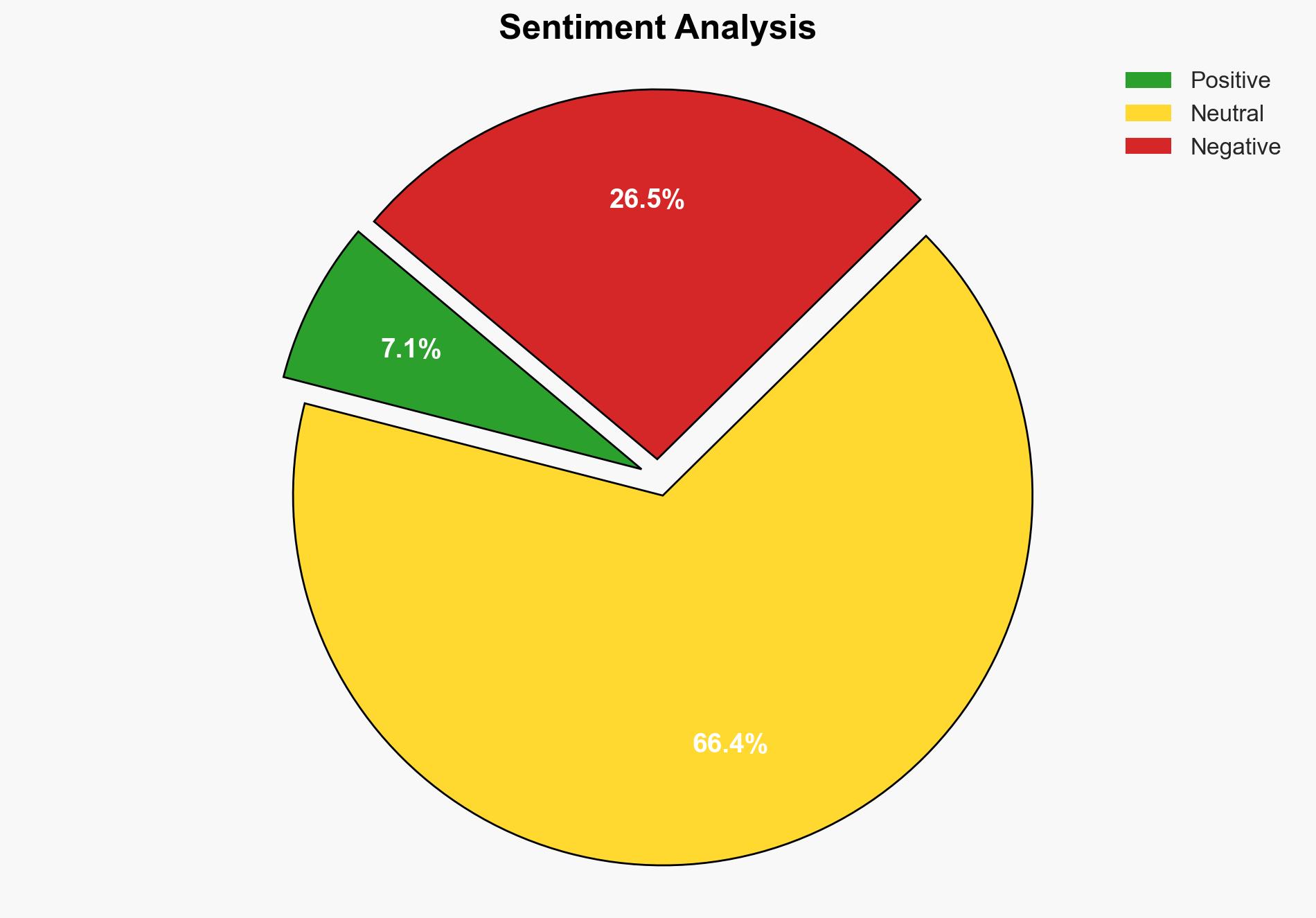Israel-Lebanon tensions rise after cross-border rocket fire – DW (English)
Published on: 2025-03-22
Intelligence Report: Israel-Lebanon tensions rise after cross-border rocket fire – DW (English)
1. BLUF (Bottom Line Up Front)
Tensions between Israel and Lebanon have escalated following cross-border rocket fire. The fragile ceasefire between Israel and Hezbollah is at risk, with both sides engaging in retaliatory actions. The situation poses significant risks to regional stability and could have broader implications if not managed carefully. Immediate diplomatic engagement is recommended to de-escalate tensions.
2. Detailed Analysis
The following structured analytic techniques have been applied for this analysis:
General Analysis
Recent events have seen Israel intercept rocket fire from Lebanon, leading to retaliatory strikes on Hezbollah targets in southern Lebanon. The Lebanese Prime Minister has issued warnings against escalating into a new war. Concurrently, tensions in the region are compounded by Yemeni Houthi accusations against Israel and ongoing protests in Israel over domestic political issues.
The Israeli military’s actions are seen as a direct response to perceived threats from Hezbollah, which could potentially draw in other regional actors. The situation is further complicated by domestic unrest in Israel, with protests against government decisions, including the planned dismissal of a key intelligence figure.
3. Implications and Strategic Risks
The escalation between Israel and Lebanon poses several strategic risks:
- Regional Stability: Continued hostilities could destabilize the region, potentially drawing in other actors such as Iran and Syria.
- National Security: Increased military actions could lead to civilian casualties and infrastructure damage, exacerbating humanitarian concerns.
- Economic Interests: Disruptions to trade routes, particularly in the Red Sea, could have significant economic repercussions.
4. Recommendations and Outlook
Recommendations:
- Engage in diplomatic efforts to mediate between Israel and Lebanon to prevent further escalation.
- Enhance intelligence-sharing mechanisms to better anticipate and mitigate potential threats.
- Consider technological upgrades to missile defense systems to improve interception capabilities.
Outlook:
Best-case scenario: Diplomatic interventions lead to a renewed ceasefire, reducing immediate tensions.
Worst-case scenario: Escalation into a broader conflict involving multiple regional actors, leading to significant instability.
Most likely outcome: Continued low-level skirmishes with periodic diplomatic engagements to manage tensions.
5. Key Individuals and Entities
The report mentions significant individuals and organizations:
- Benjamin Netanyahu
- Ronen Bar
- Yair Lapid
- Hezbollah
- Houthi Rebels




